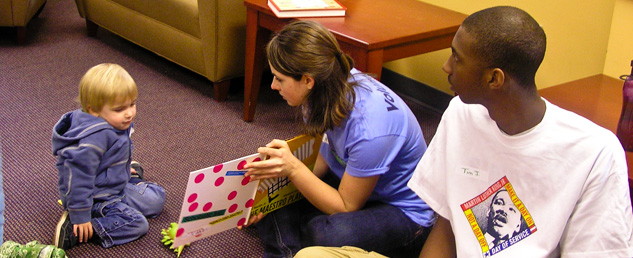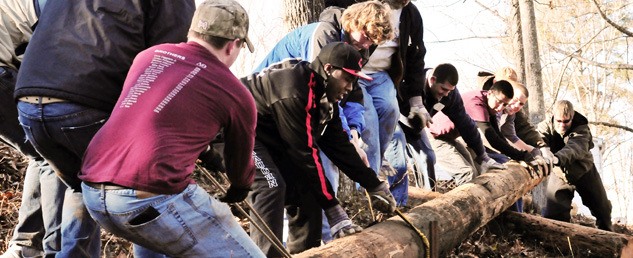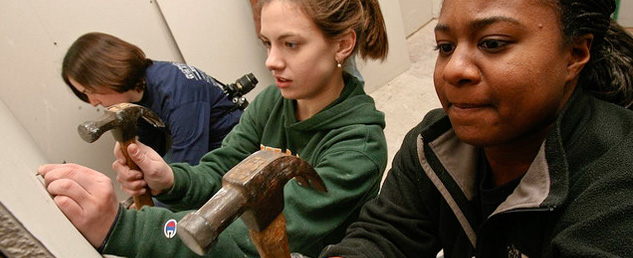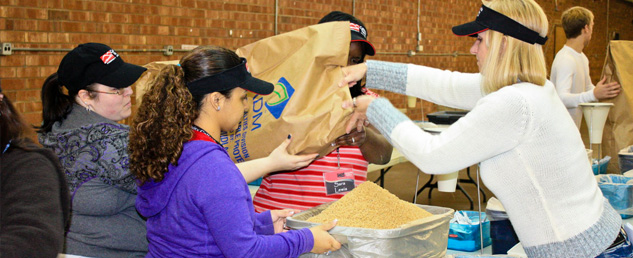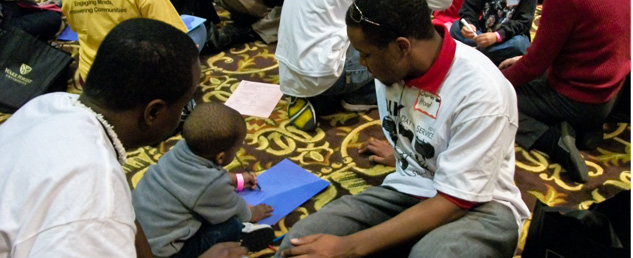By Joe Morrison
 “Sustainability” is an oft-repeated buzzword on many of North Carolina’s college campuses— and for good reason. Heavy budget cuts have forced public institutions to reassess which programs are feasible and which are freezable.
“Sustainability” is an oft-repeated buzzword on many of North Carolina’s college campuses— and for good reason. Heavy budget cuts have forced public institutions to reassess which programs are feasible and which are freezable.
At the end of each academic year, finals week at Appalachian State University (ASU) is a frenzied time for most students. During this week-long coffee binge, students frantically cram for finals between tearful goodbyes. At Appalachian, as with many other schools across the state, end-of-year haste makes lots of waste (in the neighborhood of hundreds of tons of trash that then must be transported to a landfill). Transportation and landfill fees cost schools like Appalachian hundreds of thousands of dollars annually.
However, there is a dedicated core of ASU staff and student volunteers that work to collect those leftovers before they become trash. Evolved from one student’s humble idea 12 years ago, the Appalachian State “Don’t Trash It” and “The Big Sale” campaigns have become a model for sustainability and community service. Last year alone, volunteers collected over 65 tons of useable materials in the spring drive, which was then sorted and resold the following fall for a whopping $15,000. That money was given out in the form of grants to sustainable initiatives in the community, helping to fund four local non-profits and create an ASU student scholarship.
“The mission of our program is twofold,” said Kate Johnson of ASU. “First, we want to save material from our landfills and put them to good use. And secondly, we want to engage our students in serving the local community.”
While remarkable, this story is not unique. Across the state similar collection programs are starting and flourishing. Davidson College’s “Ditch and Dash” program reduced their end-of-year waste by over 20% last year and raised $12,000 for the local Goodwill. Elon University’s “Don’t Trash It” Program combined the efforts of Religious Life, Physical Plant, Sustainability, Service Learning, and Residence Life to collect goods for the local Habitat for Humanity Restore. Eastern Carolina University created the “Pirate’s Treasure” program to collect unwanted goods from off-campus residents in a gesture that has pleased local community members who were tired of couches left by the side of the road.
These are only a few of the growing number of schools adopting similar initiatives. And there are always new schools, like Campbell University, starting collection programs in the coming year, inspired by a model that engages students in community service while saving the school money.
As for the process of starting such a program, “Start simply, evaluate, refine accordingly, allow your program to grow naturally, and you will be successful,” says Phil Smith, coordinator of Elon University’s collection program. “Start small, learn from it, and grow.”

